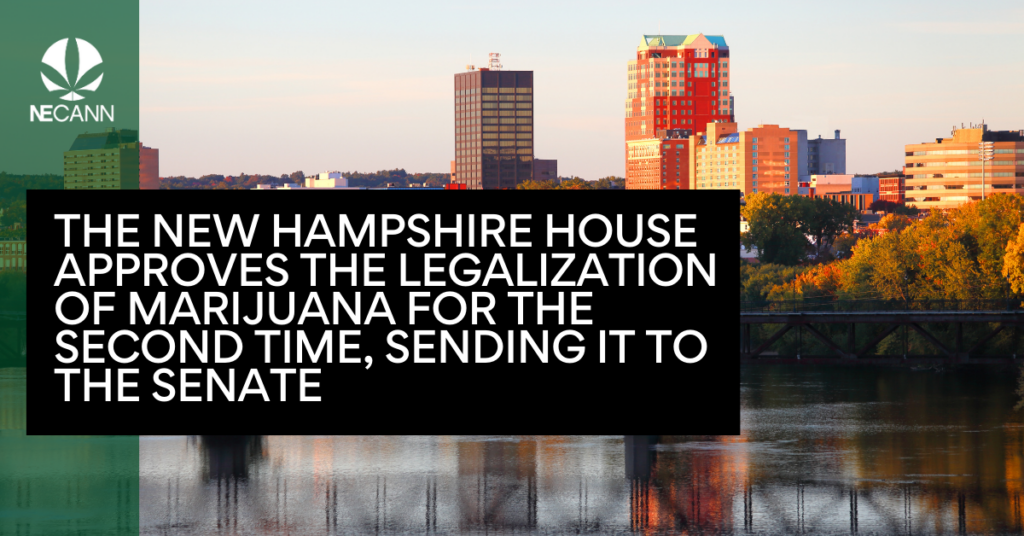The New Hampshire House of Representatives passed a significant cannabis legalization bill for the second time this session. Supported by Majority Leader Jason Osborne (R) and Minority Leader Matthew Wilhelm (D), the plan was approved with a wide margin of 272-109.
The chamber also voted down an amendment that would have included separate language regarding marijuana legalization to the budget bill, paving the way for it to move forward in the Senate.
HB 639, the bill that is now going to the Senate, was approved by the whole House in February, but it had to go to the Ways & Means Committee, where it was changed, before going back to the floor for final approval, according to a report by Marijuana Moment.
If HB 639 is passed, adults over 21 would be allowed to buy, own, and give away up to 4 ounces of cannabis. The Liquor and Cannabis Commission would control the market for marijuana and issue business licenses without a limit on how many shops can operate across the state.
Meanwhile, within 18 months of the legalization taking effect, DHHS and the commission would need to create rules that enable current medical cannabis dispensaries to apply for dual licenses. Cannabis will be taxed at 12.5% of the value of the finished product while local governments can impose their own restrictions to further restrict sale.
In terms of regulations, $100,000 will go towards collecting data on health effects caused by prohibition or control; 50% of the remaining funds will go towards education taxes in cities and towns; 30% will go towards New Hampshire retirement system’s unfunded accrued liability; 10% or $25 million (whichever is lesser) will fund programs for drug users; 5% for hiring/training drug spotters; 5% for children’s mental health services.
State/local government employees using marijuana outside work won’t get fired and their professional/occupational license won’t be revoked either. At the state level, marijuana businesses can subtract some costs from taxes as well. No home growing rules exist nor measures have been proposed to expunge past marijuana charges.



